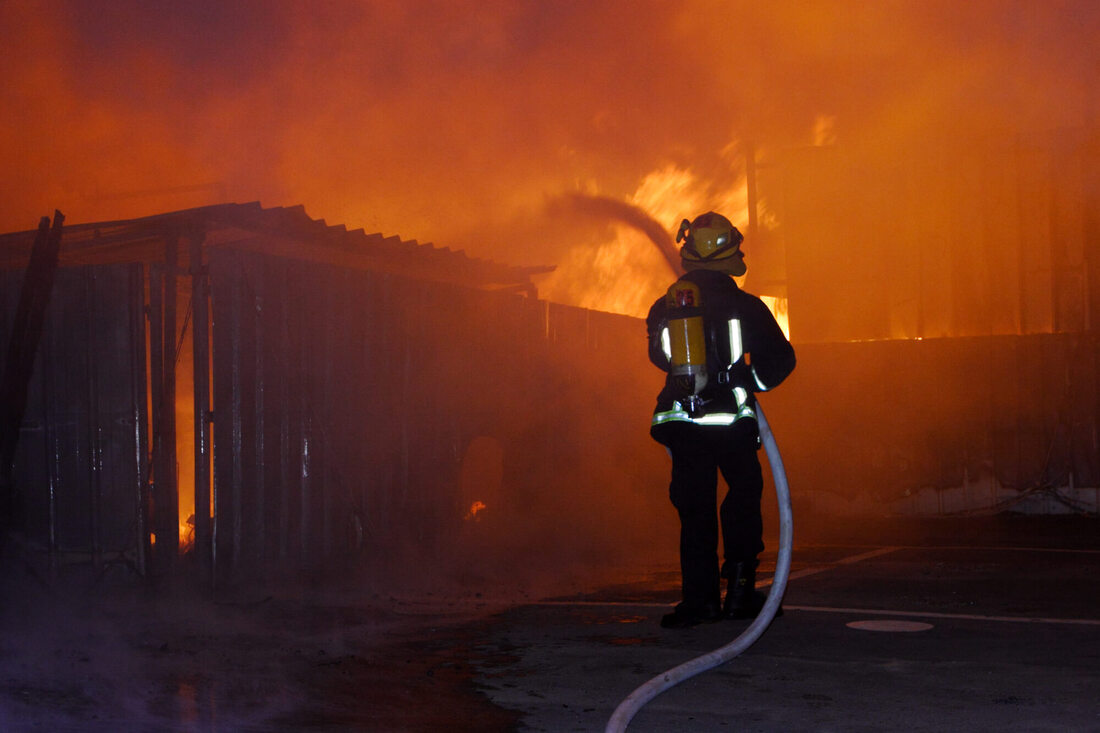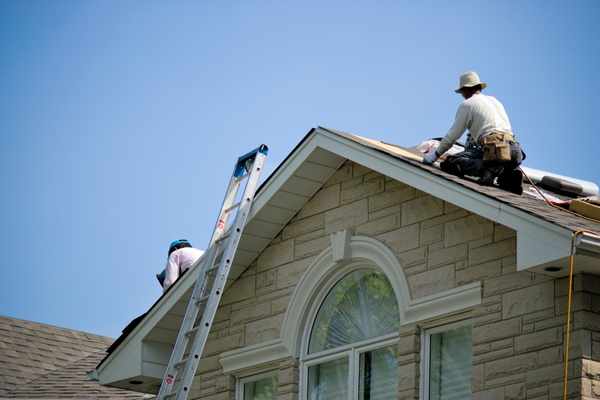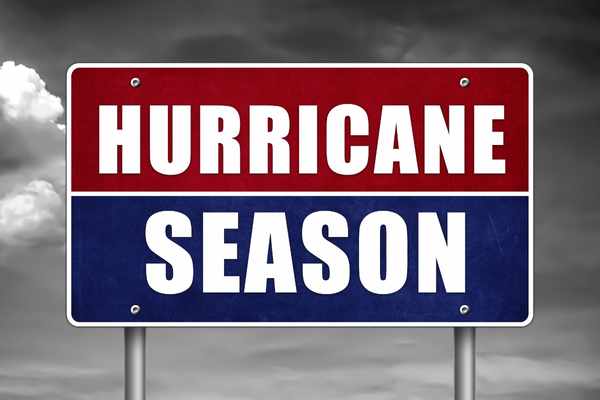|
In our work as Fort Lauderdale public adjusters, we have helped property owners file insurance claims for property damage caused by fire, water damage, flooding, hurricanes, and tornados.
As a Florida property owner, there are important things you want to know about the causes of fire. This includes how much risk fires represent in Florida, as well as the insurance policy most likely to provide coverage. Check Your Insurance Coverage As public adjusters, we help property owners receive claim settlements from their insurance company after a loss or disaster has occurred. That said, we are limited in what we can do if your policy does not provide coverage in the event of a fire or loss. This is why it is important to understand your insurance policy and the coverage it provides. Most insurance policies provide coverage for fire damage if the fire was caused accidentally. This includes but is not limited to damage caused by:
If the fire was set intentionally, it is considered arson and is excluded from both residential and commercial insurance policies. To better understand what is covered your insurance policy, it is important to speak with a public adjuster. Does Homeowners Insurance Cover Damage Caused by the Fire Department? While putting out a fire, the fire department can actually cause more damage to your property such as water damage or drywall damage just to name a few. We previously discussed an incident where a client was without power for a week and therefore was not able to mitigate the water the fire department used to put out the fire. As you would expect, mold started to grow, and we had to not only address the fire and smoke damage, but include the water damage and mold. It is important to note that water and mold damage are not the fire department’s responsibility. Their goal and purpose are to ensure that the fire is put out as quickly as possible all while keeping their firefighters safe from harm. Are Florida Properties at Serious Risk for Fire? Florida has the third largest number of properties at risk for wildfire damage, after California and Texas. While this is a startling number, it also speaks to the size of the state. Wyoming and New Mexico have a higher percentage of properties at risk, but they have less properties overall. Because Florida is a humid state, fires do not spread the way they do in California which is typically drier throughout the year. Of course, even with all these factors, residential and commercial property owners still need to be careful. Even if wildfires are less severe in Florida than in other states, it is still very possible for a fire to start in your home or business. We recommend following these fire prevention and safety tips to say safe and help prevent a fire. Looking for a Public Adjuster in Fort Lauderdale? At Reliant Insurance Adjusters, we are committed to helping residential and commercial property owners understand their policy and get the settlement they deserve from their insurance company. If you have any questions about how we can help you or would you like to speak with us regarding your insurance claim, contact us today.
0 Comments
As a silent lurker, water leakage can cause devastating damage to your property. This is because some leaks occur gradually, without any warning or fanfare.
There are a multitude of reasons why your property may be prone to leaks, and identifying these reasons is not always easy. Older structures, for example, may need to be updated to prevent water entry in ways that are not obvious at first glance. If necessary updates to your home or office are not completed, you may find yourself facing water damage to some degree. This is especially true in locations where storms or heavy rainfall are common, like in Florida. Here are a few tips to prevent water from entering your property through windows, doors, and your roof. Windows Windows in older buildings are often prone to water leakage. Often, these windows have been affected by years of temperature variation, the home moving and settling, and old caulk beginning to crack. These factors all play a role in the window no longer being watertight. If you notice gaps between your window and the wall, there are a few simple steps you can take to prevent water entry. These steps include removing debris from weep holes, the tiny passages for water to escape your home's building envelope near the bottom of the window. You can also remove old caulk and re-caulk the window frame. If you complete these steps and are still experiencing water leaks around your windows, reach out to a local contractor for an evaluation and perhaps a full window replacement. Doors Typically, water entry occurs underneath doors leading outside. These leaks happen when there is a gap between the threshold plate and the bottom of the door, or when the plate is not properly sealed. These leaks can be costly especially if your interior floor gets damaged, or if the water has spread throughout the property. If you notice water entering your structure through an exterior door, you may need to replace the door threshold plate. This can be done in a few steps:
Water leaks can also be deterred through weatherstripping, canopies, overhangs, and awnings to minimize water entry in the vicinity of the door. Roofs Leaky roofs are best prevented through the use of quality building materials. These materials include waterproof barriers, which function to prevent water seeping into areas including a vent, skylight or chimney. One way to protect your property is to install pre-manufactured flashing. Similar to waterproof barriers, flashing directs water away from openings prone to water leakage in the roof. Another level of protection for your roof would be installing roof deck protection when installing a new roof. This can create a barrier underneath your shingles, effectively keeping water from leaking through any gaps in the shingles. Lastly, consider ventilating your attic. Hot and humid attics allow for the presence of moisture, increasing the likelihood of mold. Do You Have Water Damage? Have you discovered water damage within your home or office? Are you unsure of the extent of the damage or how to proceed with if you have an insurance claim? We are here to assist you! At Reliant Insurance Adjusters, we specialize in commercial and residential insurance claims, including mold and water damage. Our adjusters are prepared to guide you through this stressful process by asking the right questions, so that you don’t have to. Contact us today, we are here to help. There are more than 50,000 employer establishments in Palm Beach County. While these businesses can represent major sources of revenue for their owners, they are also at risk for all kinds of property damage: weather events, fire, theft, water damage and more.
If you own a business in the area, it is a good idea to speak with a public adjuster in West Palm Beach. We can help you understand what coverage you have and help you file an insurance claim. Many business owners have business personal property insurance, which provides essential coverage. What Is Business Personal Property Insurance Designed to Cover? Business personal property (BPP) coverage is part of a broader commercial property insurance policy. While the broader commercial policy is likely to provide coverage for the building if you own it, BPP specifically is designed to encompass the items that are not a part of the building. This can include:
While BPP does not provide coverage for the building, it will likely provide coverage for improvements you have made to the building. It is designed to protect against several different kinds of property damage like water, fire storms, theft, and vandalism damages. As always, policy coverage varies from policy to policy and we will review your policy to determine and help you understand your coverages. Does Business Personal Property Insurance Cover Office Equipment in My Home? Business personal property coverage can include office equipment if you have a home-based business. If you own a home-based business, it is important to review your homeowners insurance policy because it may not provide the coverage you need. Depending on the size of your home-based business, you may need to supplement your homeowners insurance policy with increased business property limits, an in-home business policy, or business personal property insurance. Business personal property insurance is also tax-deductible, which makes it a great choice for all kinds of businesses. Does BPP Cover Other People’s Personal Property? There may be situations where another person’s property is put under your care, control, or custody. While BPP will not provide coverage, the broader commercial property insurance policy will. What If Your Insurance Company Disagrees Regarding Your BPP Coverage? If your insurance company denies your claim, there are still options to receive a claim settlement. The earlier you choose to work with a public adjuster, the better. We thoroughly document your claim, and assist with making sure all of your post loss policy obligations are met. Additionally, we can provide a pre-loss inspection report before damage even occurs and prove the condition of your property prior to any loss. I cannot stress enough how our clients who sustained flood and wind damage from Hurricane Ian wished they had done this as we sift through all the damage and try to document their damaged business personal property. Are You Looking for a Public Adjuster in West Palm Beach? You have come to the right place. We are experienced public adjusters and are dedicated to helping homeowners and business owners get the settlement you deserve. If you have any questions or would like to speak with us, contact us today. We are always happy to help. The Atlantic Ocean experienced several hurricanes of the 2022 season after months of mostly calm. Before making landfall as a catastrophic Category 4 Hurricane on the west coast of Florida, Ian as it traveled through the gulf waters, produced Tornados in the outer bands which affected some our local towns on the east coast of Florida. While it was not expected to make landfall on the east coast, Ian still left a trail of damage in its wake. Sadly, Ian’s force left such destruction, flooding and unfortunately loss of life. Our family, friends, colleagues, and neighbors on the west coast are trying to put their lives back together as they navigate these difficult times. It will take quite some time to restore and rebuild and we are sending our thoughts and prayers to all. As we are assisting clients with tornado damage, it is a very important reminder to always be prepared. We were not expecting to have anything but some mild rain and wind on the east coast. Before we knew it, our phones were blaring with tornado warnings to seek shelter in an interior room as the tornado was moving quickly and affecting our towns. Experts always caution that the weather can shift quickly and that deadly storms could still develop in the coming weeks. This makes being prepared the name of the game. Here are a few things to review to keep your home and property safe, as we are not in the clear yet! #1 Take an inventory of your personal property Making a list of your personal property might seem like an extra step, but it will help you make sure that you have obtained enough insurance to replace your personal belongings in the event of a catastrophic storm. If you need to ask for disaster aid, it can also expedite the claims process. Keep your critical documents with your home inventory and be sure to take them with you if you need to leave your property. #2 Prepare and Protect Your Property In order to be prepared for the remaining weeks of hurricane season, be sure that you have safeguarded your property with a few simple steps. Make sure that your gutters, downspouts, and drains are clear to ensure that water will divert away from your property to help avoid water damage. For the best defense, install permanent storm shutters to lessen the likelihood of shattered windows. If you don’t yet have shutters (or impact windows), consider using plywood to cover your windows in case that storm hits. Check on your property’s larger trees and prune any hanging branches. Put away outdoor items such as patio furniture, trash cans, potted plants, and bicycles to avoid property damage that high winds can cause if such items aren’t secure. #3 Prepare an Emergency Stash of Supplies Prepare an emergency stash of supplies well in advance in case a hurricane does come to your area. Bottled water, first aid kits, and other necessities are frequently unavailable in stores once the forecast has been released due to such high demand. Don’t wait for that moment. It is a good idea to have these supplies in advance, and a good rule of thumb is to plan for at least five days of critical supplies. One of the most important elements of hurricane preparation is planning your evacuation process. If you think evacuations are only for those who live on or near the coast, keep in mind that hurricanes can cause severe damage no matter where in the state you are. Begin planning your evacuation route by searching for information on your local county/city website. Make note of the locations of nearby shelters, pet boarding facilities, and gas stations. Review your plans with your family and consider a practice run-through to make everyone familiar with their role in case you do need to evacuate. Our Hurricane Supply Checklist is available for you to download today so you are always prepared. Hope for the Best, But Plan for the Worst During Hurricane Season It may be tempting to relax and let your guard down, but hurricane season is not over just yet. In the event there is a hurricane, be better prepared with the suggestions I covered here. Also make a note that your property insurance may cover typical repairs and extra living expenses should you need temporary shelter. However, your homeowner’s insurance will not cover flood-related destruction. Make sure you have flood insurance whether you are in a flood zone or not. If you need further information or would like an evaluation of your preparedness, at Reliant Insurance Adjusters, we have the resources needed to properly conduct pre-loss inspections and can guide you towards the best options for your needs. Contact us today for more information. |
AuthorKaren Schiffmiller Archives
July 2024
Categories |








